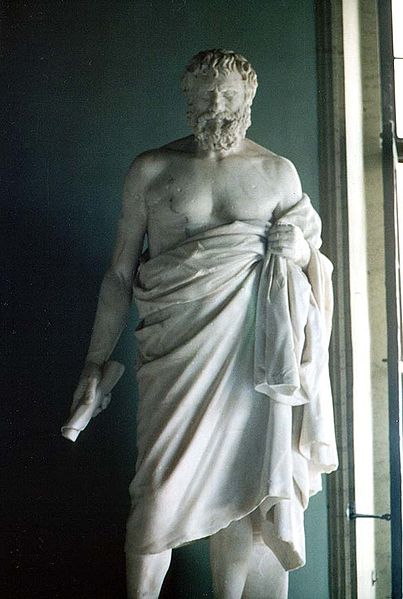Onesicritus, a Greek historical writer and Cynic philosopher, who accompanied Alexander the Great on his campaigns in Asia. He claimed to have been the commander of Alexander's fleet but was actually only a helmsman; Arrian and Nearchus often criticize him for this. When he returned home, he wrote a history of Alexander's campaigns. He is frequently cited by later authors, who also criticize him for his inaccuracies.
Alexander the Great receives a visit from Thalestris, queen of the Amazons, one of the legends recounted by Onesicritus.
Cynicism is a school of thought in ancient Greek philosophy, originating in the Classical period and extending into the Hellenistic and Roman Imperial periods. According to Cynicism, people are reasoning animals, and the purpose of life and the way to gain happiness is to achieve virtue, in agreement with nature, following one's natural sense of reason by living simply and shamelessly free from social constraints. The Cynics rejected all conventional desires for wealth, power, glory, social recognition, conformity, and worldly possessions and even flouted such conventions openly and derisively in public.
Statue of an unknown Cynic philosopher from the Capitoline Museums in Rome. This statue is a Roman-era copy of an earlier Greek statue from the third century BC. The scroll in his right hand is an 18th-century restoration.
The Cynics adopted Heracles, shown here in this gilded bronze statue from the second century CE, as their patron hero.
Bust of Antisthenes
Diogenes Searching for an Honest Man (c. 1780) attributed to J. H. W. Tischbein





